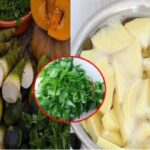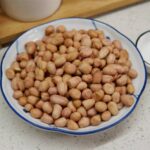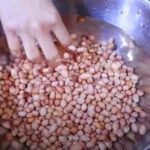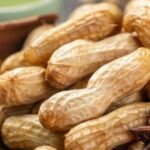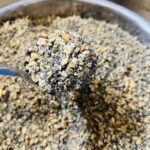Sesame salt, or *muoi vung* in Vietnamese, is a popular, humble condiment in many Vietnamese households. This delicious, versatile, and nutritious condiment can be made at home with just a few simple ingredients and steps.
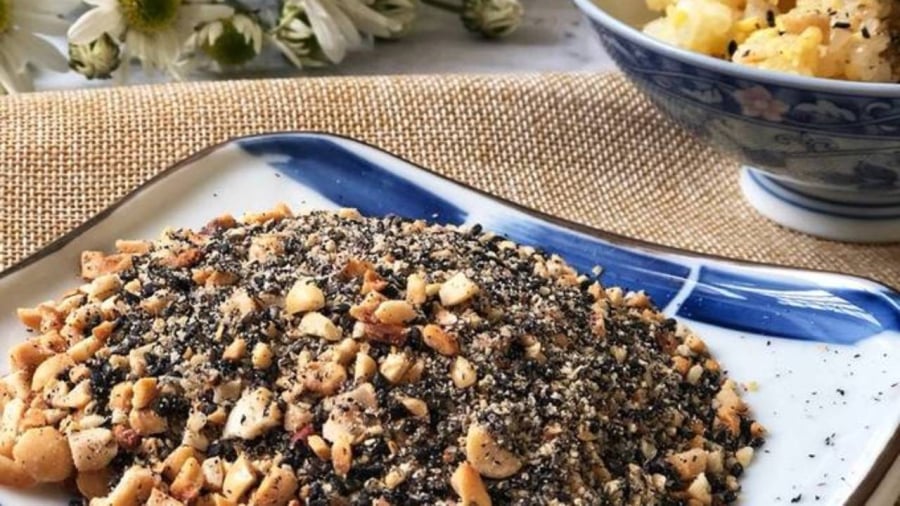
Sesame Salt
**Ingredients:**
– White sesame seeds: 100g
– Peanuts: 100g
– Salt: 1 teaspoon (adjust to taste)
**Instructions:**
1. **Roast the peanuts:** Place the peanuts in a pan and roast over low heat, stirring frequently, until they turn golden brown and the skins come off easily (about 7-10 minutes). Spread them on a plate to cool, then remove the skins. You can lightly crush the peanuts or leave them whole, depending on your preference.
2. **Roast the sesame seeds:** Put the sesame seeds in a pan and roast over low heat for 3-5 minutes until golden and fragrant. Pour them onto a plate to cool.
3. **Roast the salt:** If using salt crystals, roast them lightly for about 1-2 minutes to dry them. If using fine salt, you can skip this step.
4. **Mix and crush:** Combine the roasted peanuts, sesame seeds, and salt in a mortar and lightly crush them with a pestle. You can adjust the coarseness according to your preference, but be careful not to over-crush the mixture to avoid turning it into a paste. If you don’t have a mortar and pestle, you can use a food processor, but be sure to pulse lightly to maintain the crunchiness of the nuts and seeds.
5. **Storage:** Allow the mixture to cool completely, then transfer it to an airtight glass jar. This condiment can be stored at room temperature for 1-2 weeks if kept in a cool, dry place.
**Notes:**
– You can adjust the ratio of peanuts to sesame seeds according to your taste. If you prefer a nuttier flavor, increase the amount of sesame seeds, or if you like the peanutty taste, add more peanuts.
– Sesame salt is a delicious accompaniment to rice, sticky rice, bread, or boiled vegetables. It’s an excellent addition to vegan meals.
With these simple steps, you can easily make your own tasty, nutty, and savory sesame salt at home!
























